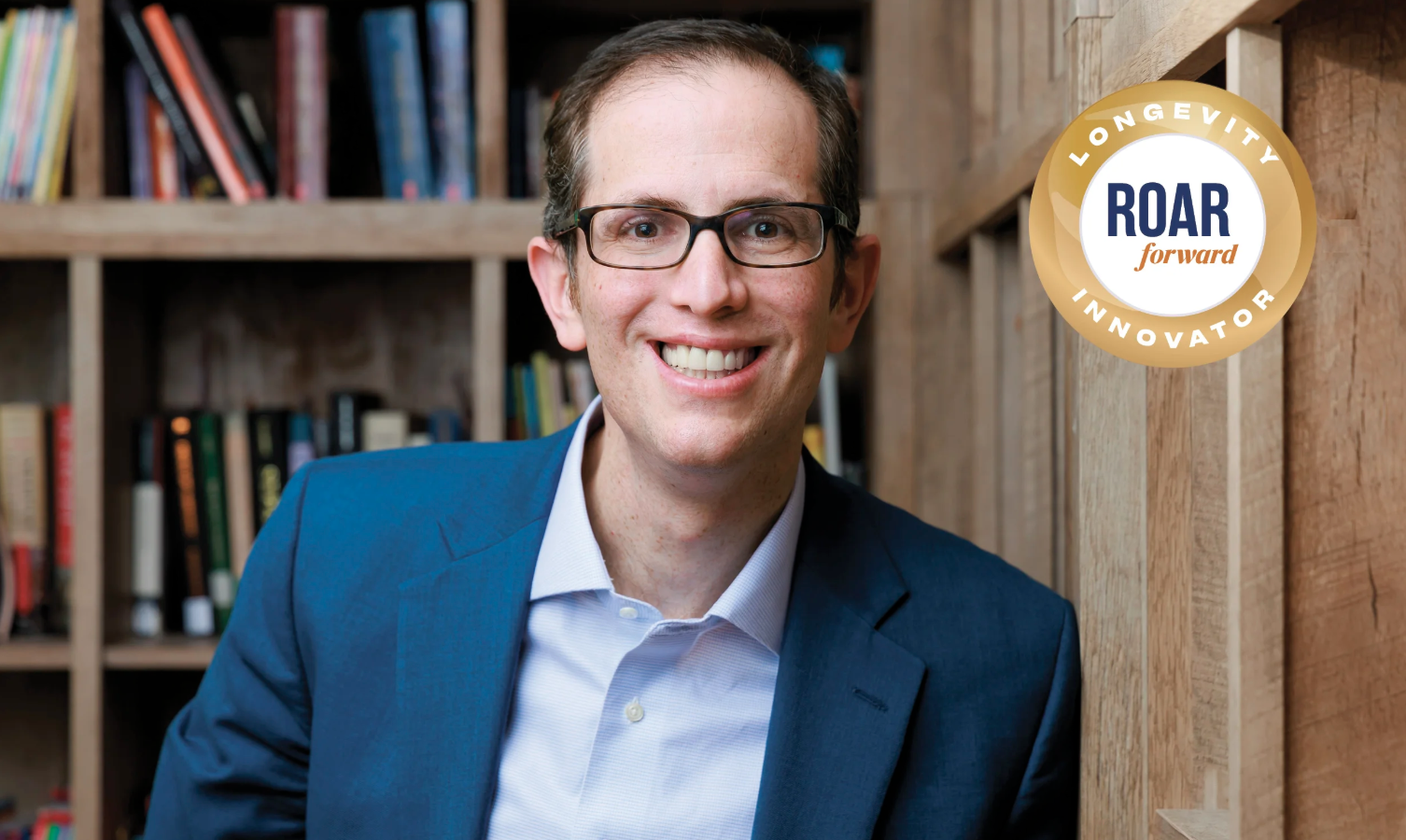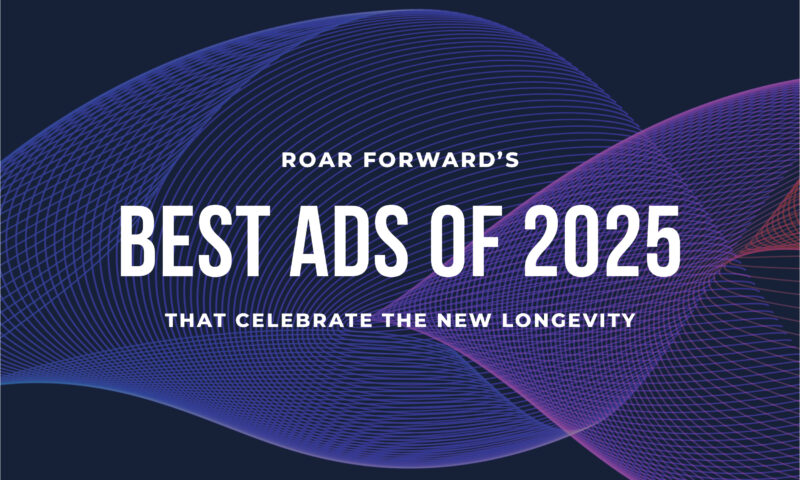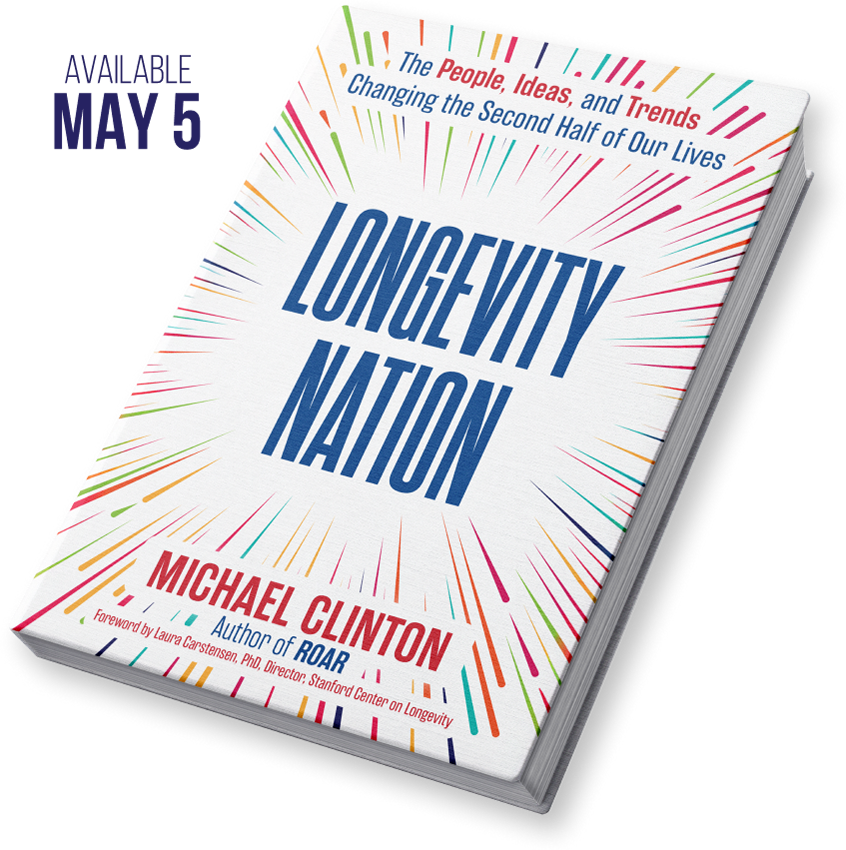
By Mark Healy
Seth Green is a dean at one of the nation’s most respected universities, but he’s not shaping young minds or preparing the next generation for a life of professional challenges. As Dean of the Graham School at the University of Chicago, he leads the university’s extension program — the first formalized extension program in the nation, by the way, founded in 1890. Green is focused on educating and enlightening students on the other side of the career journey: career Re-imagineers focused on their next chapter. You could say Green is shaping experienced minds and preparing wise, accomplished, purpose-driven professionals as they embark on a new or expanded career path.
The Graham School, which Green has led since 2021, is a crucial part of University of Chicago’s lifelong learning strategy. The school focuses on a wide range of educational pursuits, including liberal arts programs, leadership practice, travel study, alumni courses, and online master’s programs. Among its newest and recently renowned programs is the Leadership & Society Initiative (LSI). LSI is designed for professionals who are at an inflection point in their lives, and their careers, and are looking for an environment where they can design their next chapter. LSI provides an atmosphere that fosters both personal discovery and inquiry about how one’s talents can make an impact on society and their communities.
LSI provides a career and life pause — an intellectual detour through the lushest parts of a liberal arts degree — that will support LSI Fellows as they research how they can have the most impact with the time, talents, energy, and good intentions they still possess. According to Green, the core mission is “to help individuals discover and pursue their next chapter of purpose. We’re also emphasizing lifelong learning across our offerings, encouraging people to stay intellectually engaged and curious at every stage of life.”
For the first two years of LSI’s existence, the school required Fellows to move to Chicago for the academic year. But next year, the Graham School will launch the Imagine Pathway, which offers the same curriculum, but limits in-person learning to four-day retreats once a quarter. The new pathway is designed to develop deep relationships between Fellows and instructors without the necessity of leaving home for the entire experience. The Imagine Pathway will expand the program to those who may have family, community, or professional commitments that would preclude them from spending an academic year in Chicago.
Naturally, Green views the benefits of longevity differently than most. The New Longevity, which has extended both lifespan and workspan, has expanded the opportunity to have multiple career chapters. The Graham School and LSI give accomplished individuals the opportunity to pivot later in their careers, and later in their lives, and turn their talents and attention toward something other than traditional wealth accumulation “work.” For Green, the benefits of individuals aging well, and with vigor, are not just personal gains, but also societal ones. He knows that LSI Fellows can have a massive positive impact and potentially contribute to solving society’s seemingly intractable problems.
For his pioneering approach to education and his — as well as his associates’/collaborators’ —commitment to the power of lifelong learning, we at ROAR forward are naming Seth Green as one of our Longevity Innovators.
We talked with “The Dean” as the second class of LSI Fellows was finishing their nine-month program, and hopefully are about to embark on their second or third acts with renewed purpose.
How do you see our increasing lifespans and healthspans changing how we view education and personal fulfillment?
Longevity is a critical factor in shaping our approach at the Graham School. People are living longer and healthier lives, which means they have more time and capacity to contribute to society. Retirement, as we’ve traditionally understood it, is becoming less relevant. Many individuals in their 60s, 70s, and beyond are still vibrant, active, and eager to learn and contribute. This has profound implications for work, education, and personal fulfillment.
How do changing attitudes about work and retirement affect the education model?
In terms of work, we’re seeing a shift from a linear career trajectory to a more cyclical one, with periods of work interspersed with periods of learning, reflection, and service. Education needs to adapt to this new reality by offering more flexible, lifelong learning opportunities. Personal fulfillment becomes less about achieving traditional markers of success and more about finding purpose, meaning, and connection throughout one’s entire life.
How do you define lifelong learning?
To me, it’s about continuous growth in engagement and awareness with the world. It’s about being insatiably curious, having a foundational knowledge, and valuing deep, collaborative inquiry with peers. Our best programs are those that draw on people’s life experiences in knowledge generation. It’s deep learning aimed at personal growth and greater awareness and engagement with society.
My views on lifelong learning have certainly evolved. When I first started in this field, I thought of it primarily in terms of skill development and professional advancement. Now, I see it as something much broader and more profound. I’ve come to understand that people are motivated to learn for different reasons at different stages of life. For many of our LSI fellows, it’s about finding deeper meaning, exploring new ideas, and making a difference in the world. I’ve seen how powerful it can be when people are given the space and resources to reflect on their lives, explore their passions, and connect with others who share their values. At the Graham School, we aim to create that space and provide those resources.
What role does reflection play in all this?
A lot of it is about reflection, about using the last 30 years and actions they’ve taken, and characters they’ve played, to think about what really matters to them, what gives them purpose, why they’re here, what they hope to achieve, and what kind of legacy they want to leave. We’re helping them gain new lenses on the world that may be complementary to the deep lens they already have. And then we’re helping them think about all the different possibilities, largely by having people who have had similar backgrounds share how they handle this moment of life. So, I would say the biggest difference is that, even more so than our undergraduates or graduate students, we are really trying to unlock the wisdom already in the room through facilitated approaches, rather than trying to teach. There’s far more reflection than teaching in the program.
As a society we’re trained to think of older people as being more close-minded, and less mentally agile. But I don’t think that’s true.
I think what we’ve found in the Graham School is that at any age you can be open-minded, and growing, and reimagining yourself and your role in society. When you’re constantly being challenged and reading new texts, and reading new literature, and getting into other people’s worlds, and inhabiting all of these different ways of thinking, you’re inherently growing your mental agility and your fluid intelligence. In many ways, I think it’s keeping people in that agile momentum, or creating agility almost. You’re getting people [mentally] flexible and in shape for a time where they need that. So, they’re reading the great books and they’re thinking in a different way than they normally have, and that better prepares them to create a blueprint going forward, or at least one that’s closer, that aligns closer to what they want and the kind of purpose that’s right for them.
My experience with Graham learners, and it’s anecdotal, is that they are more open-minded, they are more creative, they are more optimistic. I think that learning has all of those added values.
The Leadership & Society Initiative program focuses on “accomplished individuals.” How do you define “accomplished” in this context, and why is it important for the program?
“Accomplished” in the LSI context refers to individuals who have achieved a significant level of success in their chosen fields, whether it’s business, government, or the nonprofit sector. They have a wealth of experience, skills, and resources. However, accomplishment is not just about professional success; it’s also about personal growth, resilience, and a demonstrated commitment to making a positive impact. We look for individuals who have shown leadership, initiative, and a strong sense of purpose. The reason this focus is important is that these individuals bring a unique perspective and set of capabilities to the program. They have already navigated complex challenges, made tough decisions, and achieved meaningful outcomes. When they come together in the LSI cohort, they create a powerful learning environment where they can share their experiences, challenge each other’s assumptions, and collaborate on solutions to societal problems. Their collective wisdom and experience are invaluable. Also, the LSI program is designed to help them redirect these established skills and resources towards new forms of social good, building on the extensive accomplishments they already have.
Are the LSI Fellows different from other students you’ve seen and served over your career?
People form relationships and create very deep bonds that are very rare in midlife. We keep them as a cohort for all of their cohort-based classes and so the conversations spill over the courses throughout the year, and they’re often deeply personal and vulnerable, because people are in that inflection point in their lives. And I think the opportunity to really problem solve with one another and think through both challenges and opportunities is greater and more meaningful because of that structure.
Is there a book or a lesson that seems to really resonate with students?
Yes, Professor Harry Davis talks about the importance of “traveling lightly.” When we go to a new destination, we cannot travel with everything we own, or the baggage will weigh us down. At the same time, we don’t want to leave all our clothes behind. We need to think intentionally about what we want to bring and what we want to let go off. Traveling between chapters of life involves the same approach—to lean into a new identity and purpose, we sometimes need to let go of a past identity, even one that served us incredibly well.
For more information on University of Chicago’s Graham School visit their website.
Mark Healy is an editor, writer, and creative leader. He’s written for The Wall Street Journal, The New York Times, New York, and others. He’s the co-founder of Flip Turn Studios, an independent studio that produces editorial and marketing content across multiple channels.



